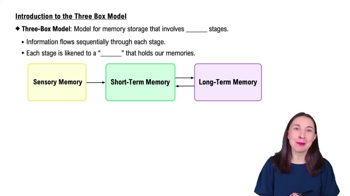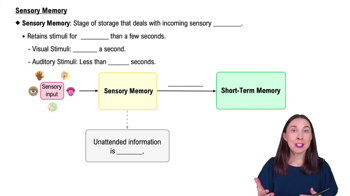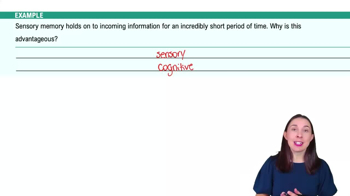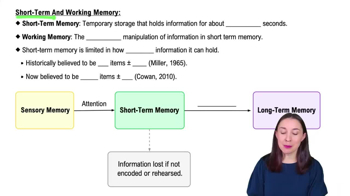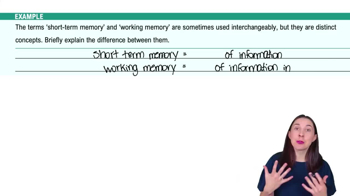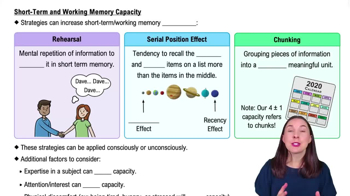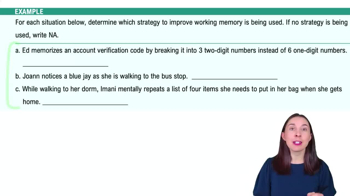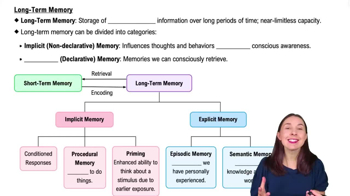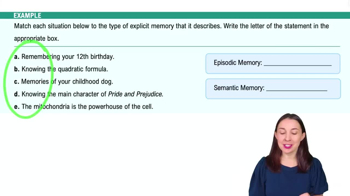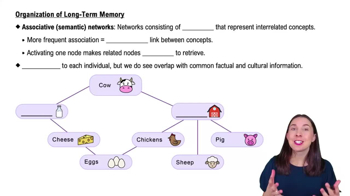Table of contents
- 1. Introduction to Psychology1h 43m
- 2. Psychology Research2h 20m
- 3. Biological Psychology2h 41m
- 4. Sensation and Perception28m
- 5. Consciousness and Sleep32m
- 6. Learning41m
- 7. Memory34m
- 8. Cognition37m
- 9. Emotion and Motivation35m
- 10. Developmental Psychology33m
- 11. Personality48m
- 12. Social Psychology41m
- 13. Stress and Health41m
- 14. Psychological Disorders44m
- 15. Treatment47m
7. Memory
Storage - The Three Box Model of Memory
Struggling with Psychology?
Join thousands of students who trust us to help them ace their exams!Watch the first videoMultiple Choice
Which of the following statements about sensory memory are true?
I) Irrelevant stimuli are forgotten virtually immediately.
II) Auditory stimuli are generally retained for longer than visual stimuli.
III) Information that you pay attention to moves to short-term memory.
A
I & II.
B
I & III.
C
II & III.
D
I, II, & III.
 Verified step by step guidance
Verified step by step guidance1
Understand the concept of sensory memory: Sensory memory is the shortest-term element of memory. It is the ability to retain impressions of sensory information after the original stimuli have ended.
Evaluate statement I: Irrelevant stimuli are forgotten virtually immediately. This is true because sensory memory holds information for a very brief period, and irrelevant stimuli are not processed further.
Evaluate statement II: Auditory stimuli are generally retained for longer than visual stimuli. This is true as echoic memory (auditory) lasts longer than iconic memory (visual).
Evaluate statement III: Information that you pay attention to moves to short-term memory. This is true because attention is the process that transfers information from sensory memory to short-term memory.
Combine the evaluations: Since all three statements are true based on the understanding of sensory memory, the correct answer is I, II, & III.

 1:22m
1:22mWatch next
Master Introduction to the Three Box Model with a bite sized video explanation from Hannah Gordils
Start learningRelated Videos
Related Practice

